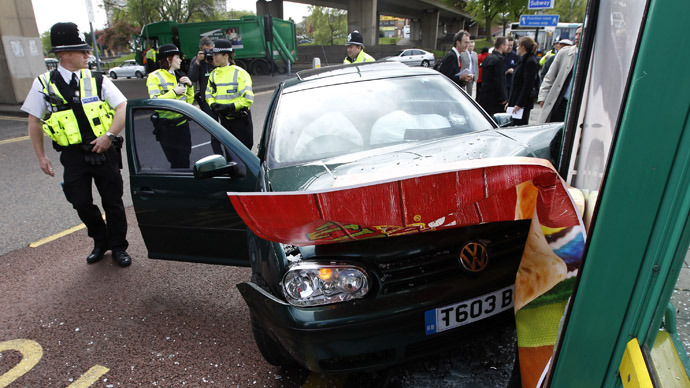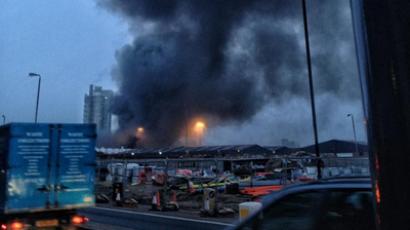‘Grieving’ reckless motorists to avoid prosecution in UK

Grief can now be used a defense in the UK in dangerous driving cases in which a loved one of the perpetrator dies. In such cases, the charges could be dropped altogether due to the emotional trauma involved, the UK’s top prosecutor announced.
Director of Public Prosecutions Keir Starmer told UK state lawyers to look at the “greater emotional impact” of a sentence when charging motorists who have accidentally killed a family member or loved one in a car accident. Starmer argued such sentences would be “oppressive and insensitive” to people who have already suffered severe emotional trauma.
Under the revised Crown Prosecution Service (CPS) guidance, prosecutors are told to balance the seriousness of the incident with the fact that the driver is“likely to have suffered significant personal loss from the bereavement.”
“Whilst there may be sufficient evidence to prosecute, we recognize that in some instances such prosecutions would be inappropriate and it would not be in the public interest to proceed because of the likely lifelong consequences of losing a loved one and being responsible for that loss,” the new guidelines said.
“A driver who makes a genuine mistake that ends the life of a close friend or family member will bear a particularly heavy responsibility,” Starmer told reporters.
This is the first time in the UK that emotional grief can be used as an argument to drop murder charges. Under the new rules, even those guilty of killing a passenger while driving and talking on their phone or tuning the radio may not end up being charged.
For example, parents who cause road accidents while racing to a hospital with a sick child will avoid being charged, as they would fall under the same category as police and other emergency crews who are considered to be responding to an emergency.

If the offense is more serious – such as drunk driving or prolonged dangerous driving – then the offender would still be prosecuted. However, the decision of whether to charge or not will be made by prosecutors behind closed doors, and not by a judge and jury in public.
Last year, there were over 660 prosecutions involving deaths caused by a driving offenses in the UK.
Prosecutors to have final say whether to bring charges?
Road safety activists hailed the revised guidelines: "If a genuine mistake has been made by a driver which leads to the death of a family member, they will have to live with that guilt and remorse for the rest of their lives,” AA President Edmund King told The Telegraph. "If the guidance is managed with sensitivity it will result in a common-sense approach to crime and punishment.”
The aftermath of losing a close family member “can be much more traumatic and longer-lasting than a prison sentence,” King added.
Kevin Delaney, head of road safety at the Institute of Advanced Motorists and former senior traffic officer, agrees: “This is common sense and a sensible approach,” he said. “It should make sure only those responsible for grossly careless or obviously dangerous driving are prosecuted.”
Road victim activist groups have criticized the revised guidelines, arguing that state lawyers should not be able to determine punishment for dangerous drivers. They say that the new guidelines are open to abuse by individuals who use cars as a murder weapon.
“We are concerned this guidance gives an overriding bias against prosecution in the majority of nearest and dearest cases,” road safety charity Brake told the Daily Mail.
Other activists also believe that prosecutors should not have the power to decide whether to charge an individual.
“You cannot be sure everything is known at that stage. The decision should be for a jury and a judge who have heard all the evidence,” criminologist David Green said. “The Crown Prosecution Service may be looking in this case for ways to reduce their workload rather than ways to further the cause of justice.”
The job of the prosecution is to “bring cases forward” and not “mitigate,” argued lawyer and author on family life Jill Kirby. “Mitigation is a matter for the courts in the last stage of a case.”













